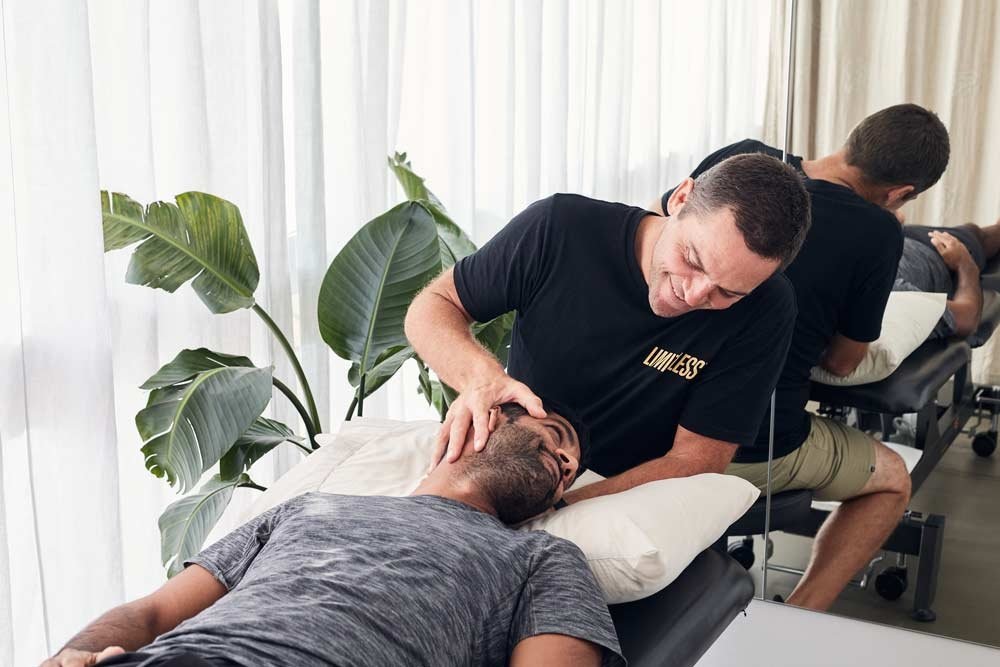Vertigo is a sensation of feeling off balance, often accompanied by dizzy spells that create a false sense of spinning or movement, either of yourself or your surroundings. It can make you feel as though you or the world around you is spinning, even when you are standing still. Fortunately, physiotherapy offers effective treatments that can help manage and sometimes even resolve vertigo symptoms. Let’s learn about the various vertigo physiotherapy treatment options offered by advanced physiotherapy clinics like ReLiva Physiotherapy, detailing the important techniques and exercises for helping you regain stability and reduce dizziness.
What is Vertigo and What are Its Causes?
Before exploring treatment options, it’s important to understand vertigo and its causes. Vertigo is often a symptom of underlying issues rather than a condition itself.
- Inner Ear Problems: Vertigo is most commonly linked to problems in the inner ear, such as Benign Paroxysmal Positional Vertigo (BPPV), Meniere’s disease, and vestibular neuritis.
- Neurological Issues: Conditions like migraines or stroke affecting certain parts of the brain can also cause vertigo.
- Other Causes: Less commonly, vertigo can be a symptom of head or neck injuries and certain medications.
Key Physiotherapy Techniques for Treating Vertigo
Physiotherapists employ specific techniques tailored to address the root cause of vertigo, providing relief and improving patients’ balance and stability.
- Canalith Repositioning Manoeuvres: Especially effective for BPPV, these manoeuvres help move the calcium deposits in the inner ear that cause vertigo.
- Vestibular Rehabilitation Therapy (VRT): This is a broad term for exercises that compensate for inner ear deficits and help with balance.
- Self-Exercise Program for Vertigo Treatment: It includes exercises to continue at home for symptom control and improved fitness.
A thorough assessment is necessary to determine if dizziness is due to vestibular issues or other conditions like cervical spondylosis, which may need a different treatment approach.
Effective Exercises for Vertigo Management
Engaging in specific exercises is important in managing vertigo, as they target the underlying mechanisms resulting in dizziness. These exercises are designed to alleviate immediate symptoms and provide strategies for long-term control of vertigo, giving you independence in managing the condition.
- Brandt-Daroff Exercises: A series of movements you can perform at home to help manage vertigo. These involve sitting on the edge of a bed, lying down alternately to each side, and sitting up. This helps the vestibular system adapt and recalibrate to normal balance signals.
- Epley Manoeuvre: Often used for BPPV, this involves sequentially moving the head into four positions to move the debris in the inner ear. It’s a highly effective treatment that can quickly relieve vertigo symptoms.
- Balance Training: Simple exercises like standing on one leg or using a balance board can help strengthen the body’s balance systems. Regular practice improves overall stability.
- Habituation Exercises: These involve repeated exposure to the movements that trigger vertigo. They help the brain adapt over time and reduce the severity of symptoms.
Choosing the Right Physiotherapist for Vertigo Treatment
When looking for physiotherapy treatment near me for vertigo, it’s important to choose a practitioner with specific experience and success in treating balance disorders. The things that you should be looking for are:
- Specialisation and Experience: Look for a physiotherapist who specialises in vestibular rehabilitation.
- Equipment and Techniques: Ensure the clinic has the tools to perform comprehensive balance assessments and treatment.
- Reputation: Checking reviews or getting recommendations from other healthcare professionals can guide you to reputable practitioners.
What to Expect from Your Physiotherapy Sessions?
Knowing the process of your physiotherapy sessions is also important, as it helps set realistic expectations and prepares you for the treatment journey. Knowing what each session includes allows you to be more engaged and proactive about your recovery, ultimately enhancing the effectiveness of the treatment.
- Initial Assessment: This is a thorough assessment to determine the specific type of vertigo and its causes. It may involve tests to evaluate balance, head movements, and possibly hearing.
- Personalised Treatment Plan: A tailored treatment plan will be developed based on the assessment. This plan is dynamic and adapts to your progress and any new symptoms.
- Progress Tracking: Regular follow-ups to assess progress and adjust treatment as needed. These sessions ensure the treatment remains effective and responsive to your healing process.
- Education and Advice: During your sessions, you will learn more about your condition and receive advice on managing symptoms at home. This knowledge is key to coping with vertigo in daily life.
- Home Exercise Program: You will likely be prescribed exercises to perform at home. These exercises are an integral part of the treatment, aiming to enhance the therapy done during sessions and speed up recovery.
Lifestyle Changes to Support Vertigo Treatment
Certain lifestyle changes can enhance the effectiveness of your physiotherapy treatment and help manage vertigo symptoms. These often include:
- Diet and Hydration: Staying hydrated and avoiding certain foods and beverages that can trigger vertigo, such as caffeine and alcohol.
- Regular Exercise: Engaging in regular gentle exercise, like walking or swimming, can help improve overall balance.
- Stress Management: Techniques like yoga and meditation can help manage stress, which might exacerbate vertigo symptoms.
Vertigo can significantly impact your quality of life, but with the right physiotherapy treatment, it is possible to manage and even overcome the symptoms. Advanced techniques and exercises provided by experienced physiotherapists, like those at Re Liva Physiotherapy, offer targeted relief and long-term management strategies. By understanding the underlying causes, committing to a personalized treatment plan, and incorporating recommended lifestyle changes, you can regain your balance, reduce dizziness, and return to your daily activities with confidence. Prioritising a comprehensive, evidence-based approach to your treatment will ensure the best possible outcomes for your recovery.



